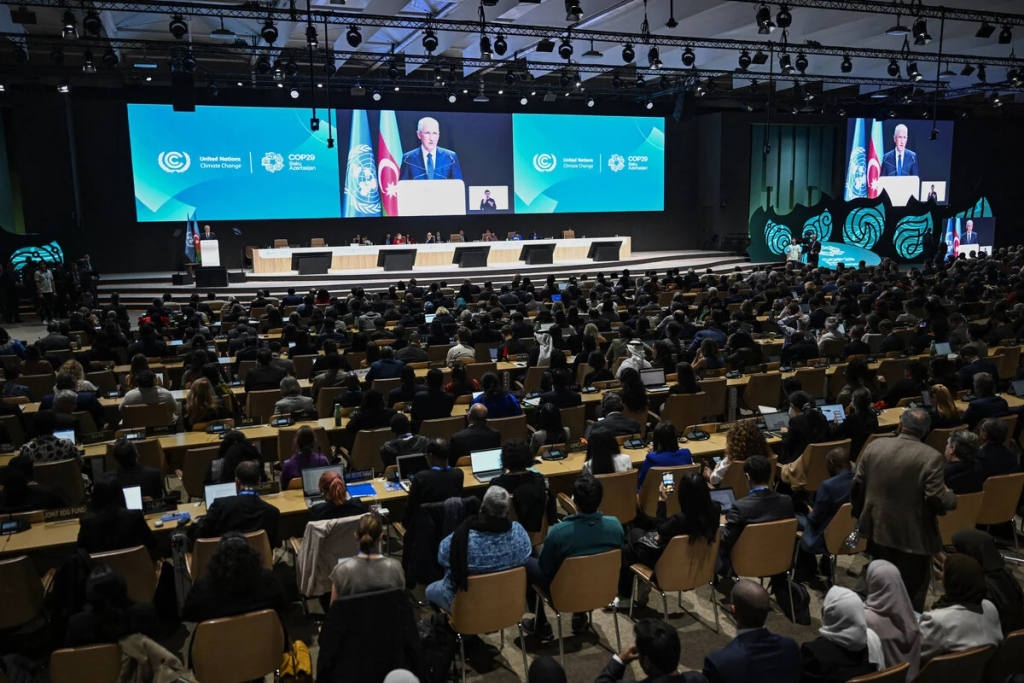African leaders have gathered at the COP29 climate conference in Baku, Azerbaijan, calling for decisive action from wealthier nations to address the growing impacts of climate change.
Representing a continent severely affected by droughts, floods, and disrupted livelihoods, the African Group of Negotiators (AGN) has proposed a bold target of $1.3 trillion in annual climate financing by 2030.
“Africa’s needs are non-negotiable. This is a matter of survival, not just for us, but for the planet,” Ali Mohamed, AGN Chairperson and Kenya’s Special Envoy for Climate Change said, highlighting the urgency of the demand.
The leaders’ message has been consistent throughout the summit: developed nations must move beyond vague pledges and meet their commitments to provide climate finance that directly addresses Africa’s adaptation and mitigation needs.
Kenya’s Prime Cabinet Secretary Musalia Mudavadi underscored the dire situation facing African communities.
“Our communities are drowning in floods, drying up from droughts, and struggling to cope with erratic climate patterns. This crisis was not of our making, yet we are paying the price. It is only fair that those responsible step up,” he said.

African representatives stressed that the $100 billion annual pledge made by wealthier nations nearly a decade ago has not been met, leaving the continent with mounting challenges.
Uganda’s Minister for Water and Environment, Sam Cheptoris, criticised the global approach to climate finance, stating;
“For too long, climate finance has been treated like a charity handout rather than a rightful obligation,” he said.
The $1.3 trillion proposal, viewed by some as ambitious, reflects the real cost of addressing climate change in Africa.
Leaders insist that financing should focus on grants and concessional funds rather than loans to avoid worsening the continent’s debt burden.
South Africa’s Environment Minister Barbara Creecy echoed the call for systemic change, urging multilateral development banks to provide accessible and affordable financing for Africa’s energy transition.
“The global financial system must change. We cannot talk about a just transition while African nations are trapped in debt cycles,” she said.
While some progress has been made in discussions, concerns remain about whether the summit will deliver tangible outcomes. For African nations, climate finance is not just an aspiration but a lifeline to survival.


